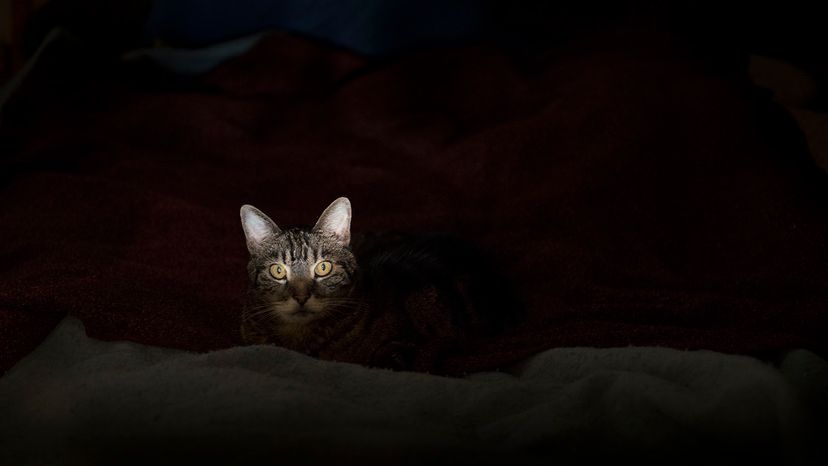
Cat people, you know how it is: Your cats are out carousing all night, and they think they're doing you a favor by bringing a dead – or, worse, half-dead – mouse into the house at the break of dawn. You've tried to enforce a curfew, but they just laugh in your face and go out to rumble with their friends and enemies alike. Cats, man.
The people of some towns in Iceland have decided enough is enough and instituted cat curfews. Beginning in 2023, the town of Akureyri, which has a population of about 19,000 humans and 2,000 to 3,000 cats, will require housecats to stay indoors from midnight to 7 a.m. Akureyri isn't the only town in Iceland where cats have a curfew — or are even banned from outdoor life completely — but it's been the hottest battleground, with an opposition party that supports the free movement of cats.
Advertisement
The cat curfew people cite two main reasons for keeping these adorable demons inside at night: First, they kill a lot of wildlife. And second, they're a nuisance.
Let's tackle the wildlife question first. A pretty famous 2013 study by researchers at the Smithsonian Conservation Biology Institute found that "free-ranging domestic cats kill 1.3 to 4.0 billion birds and 6.3 to 22.3 billion mammals annually." Yes that's billion with a B! However, the very next sentence in this study says, "Un-owned cats, as opposed to owned pets, cause the majority of this mortality." It is very hard to impose a curfew on cats without homes.
Granted, that is a lot of animals that die at the paws of our domestic housecats. And Iceland may have a point, since the Smithsonian study estimated that the effect of felines may have more impact on islands: "Free-ranging cats on islands have caused or contributed to 33 (14 percent) of the modern bird, mammal and reptile extinctions recorded by the International Union for Conservation of Nature (IUCN) Red List."
Those are pretty compelling reasons, but why the residents of Iceland want to impose a curfew are a little smaller in scope. People complain about cats spraying urine on their patio, or trampling flowerbeds, or loudly fighting in the middle of the night. Annoying, yes. Causing mass extinction, not so much.
But it turns out that housecats may have an outsized impact on wildlife after all. A 2020 study published in Animal Conservation tracked 900 cats with GPS in the U.S. and found that cats kill very, very locally. They don't often range any farther than their own yard, or maybe their neighbors'. Yet they're responsible for billions of deaths, which means those kills are concentrated. So our friendly housecats can have more impact on wildlife populations than wild cats, which range over much larger territories than, say, a suburban block or two.
Peter Marra, the lead researcher on the 2013 Smithsonian study, told Science News: "The big message is responsible pet ownership." So maybe cat curfews can save some birds – and some neighbors' sanity.
Advertisement


